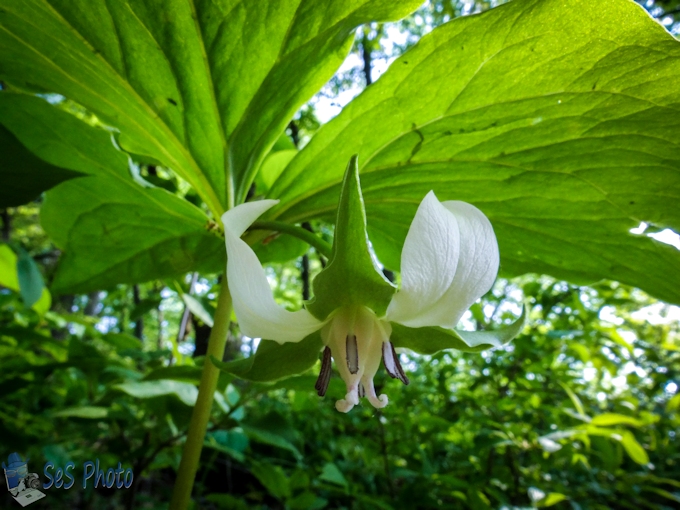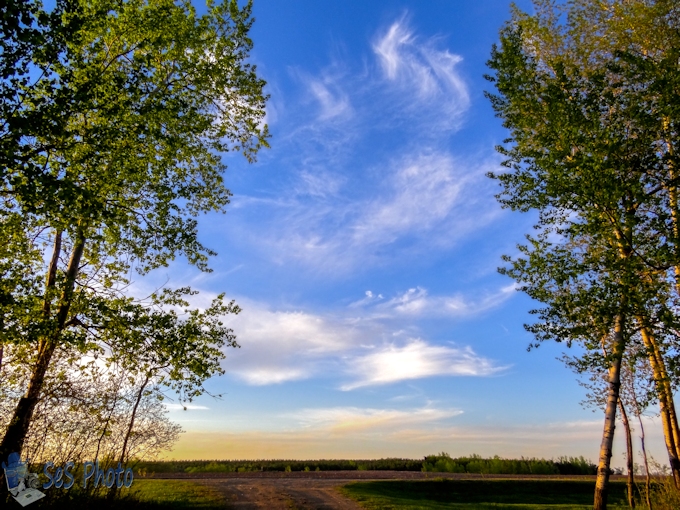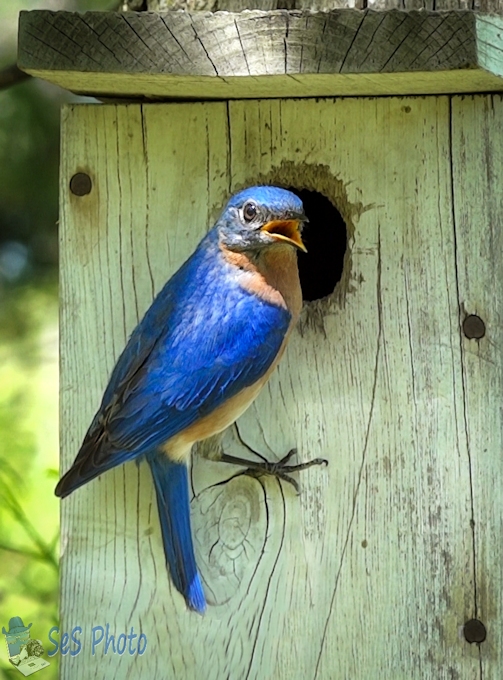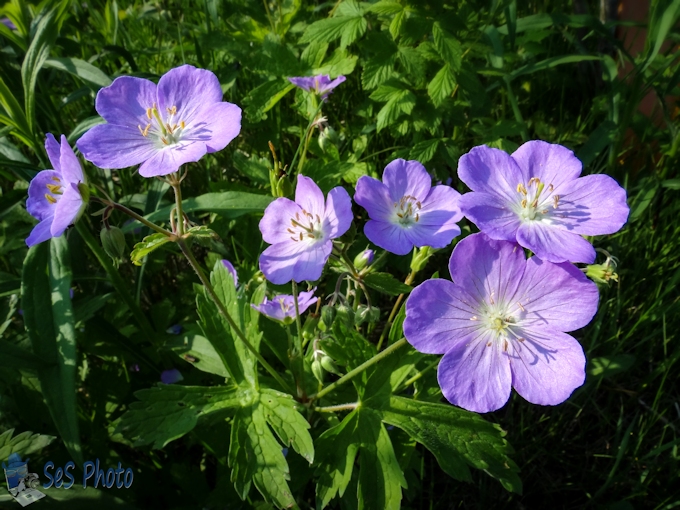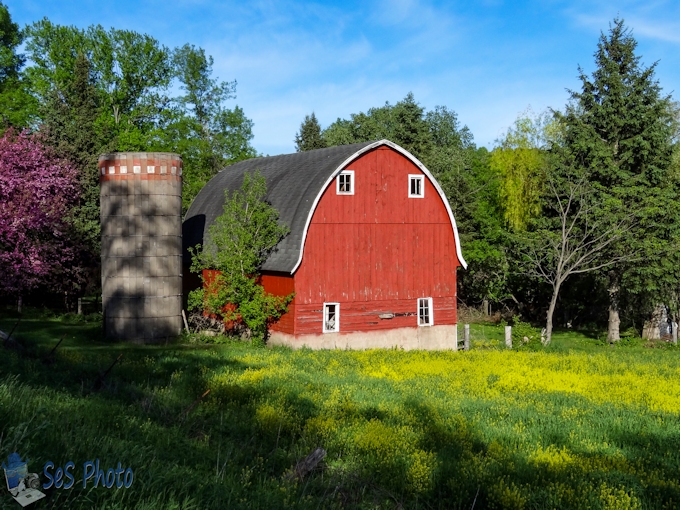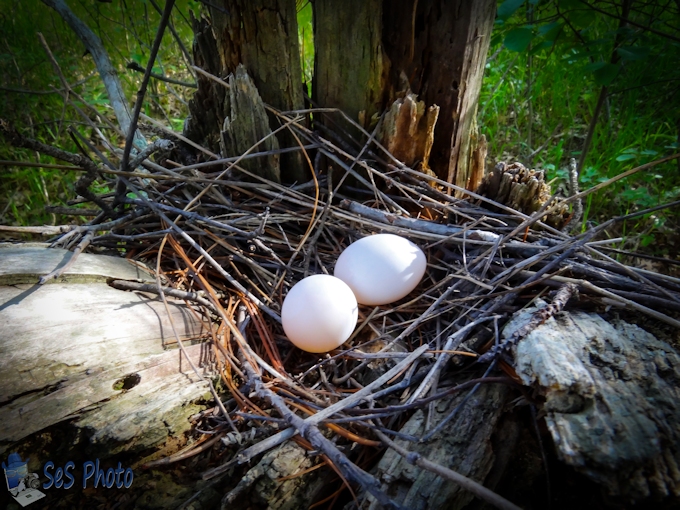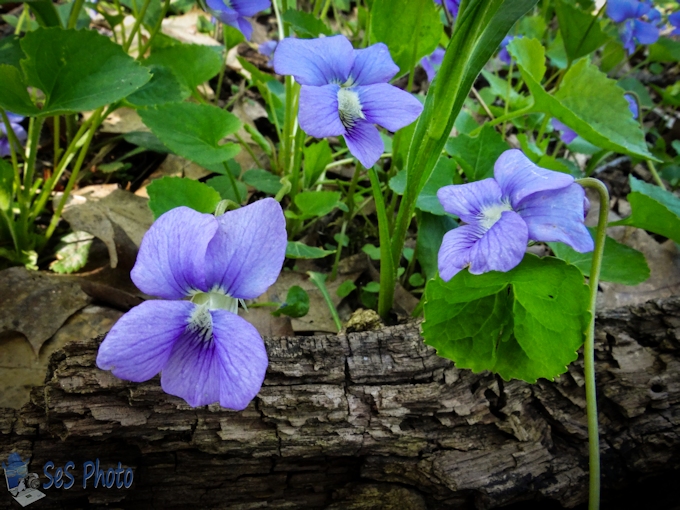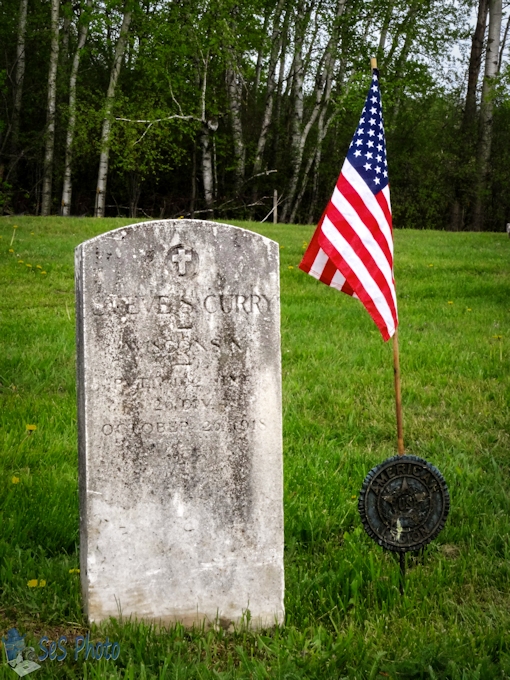The Nodding Trilliums are blooming, although it is easy to miss the blossoms since they hang under the leaves. But hiding under the leaves, don’t always protect them from the deer seeing them and eating the plant. And it is hard to get a picture of the blossoms since have to get down and look up. Trillium cernuum is also known as Nodding Wakerobin and Whip-poor-will flower. The Drooping Trillium is very similar and hard to tell the ‘drooping’ ones from the ‘nodding’ ones.
Nodding Trillium


